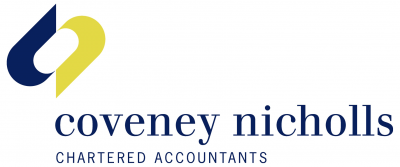If you work in the construction industry, you’ll probably have heard about the construction industry scheme (CIS) at one point or another.
But the CIS can be very complex and difficult to understand. Plus, if you get something wrong, you might get hit by a number of penalties.
So, here’s everything you need to know about CIS compliance and penalties, and how to get it right.
What is the CIS?
The CIS is a tax deduction scheme for the construction industry to tackle the problems that cash-in-hand payments cause HMRC.
While cash-in-hand payments are perfectly legal, the Government loses around £3.5 billion a year when people don’t declare them and therefore don’t pay tax on them.
The CIS applies to payments made by a contractor to a subcontractor, who is required to deduct a percentage of payments and paid to HMRC.
Subcontractors registered on the CIS will see 20% of their payments withheld for tax purposes, rather than 30% for unregistered subcontractors.
If the subcontractor then subcontracts the work to another party, they will become the contractor in relation to the third party. They will therefore have to apply the CIS to any payments they make.
The CIS does not apply to regular employees, since payments to employees are covered by the PAYE system of deduction of tax at source.
When does the CIS apply?
The CIS applies to all payments made under a construction contract relating to a construction operation that is not an employment contract.
For the purposes of the CIS, contractors not only include property developers and builders, but non-construction businesses and public bodies that spent an average of £1 million or more on construction over the last three accounting periods.
Gross payment status
If you have gross payment status as a subcontractor, contractors will pay you in full without making any tax deductions.
But, that doesn’t mean you’re exempt from paying tax – instead, it will be your responsibility to pay all the tax and National Insurance contributions you owe in one go at the end of tax year.
It will, however, help you attain a positive cashflow and cover your day-to-day expenses, as long as you can work out how big your tax bill will be and successfully budget for it.
To qualify for gross payment status, you’ll need to be in HMRC’s good books with your taxes and have a turnover of at least £30,000.
If you’re a partnership or limited company, your turnover must be £30,000 per partner/director or at least £100,000 for the whole partnership or company.
CIS penalties
If any of your CIS returns are one day late, HMRC will charge an initial fixed penalty of £100.
If you still not have sent that return:
- 2 months after the date it was due, you’ll be charged a second fixed penalty of £200
- 6 months after the date it was due, you’ll be charged a further penalty of £300 or 5% of any liability to make payments that should have been shown in the return
- 12 months after the date it was due, you’ll be charged a second further penalty, the amount of which will depend on why your return was late.
For the third penalty, the amount HMRC charges will either be £300 or 5% of any liability to make penalties, or, if you withheld information, a ‘higher’ penalty of:
- up to 100% of any liability to make payments
- a minimum penalty of £1,500 or £3,000.
Eliminate the risk of penalties
The easiest way to make sure you never get hit by a penalty for not sending your CIS return on time is to get a professional to help you with it.
We would be more than happy to help you with your CIS returns. Contact our team today.

